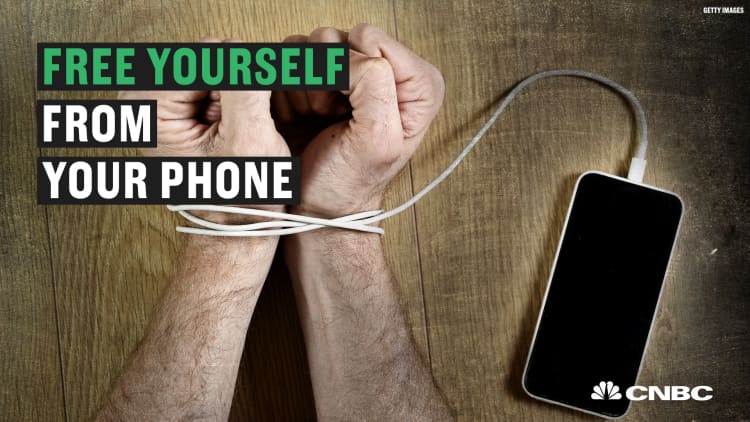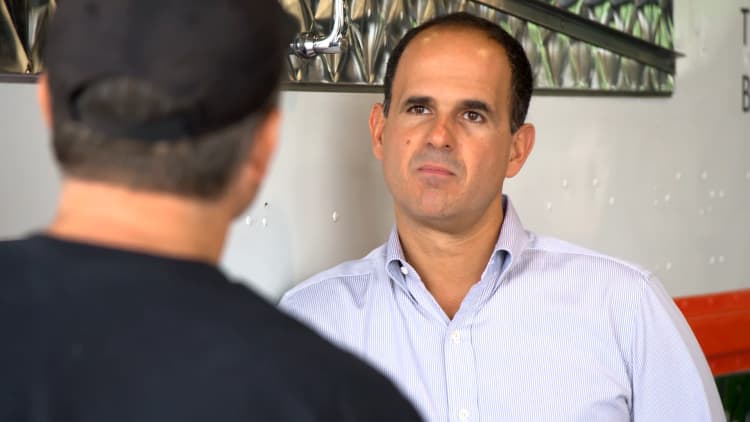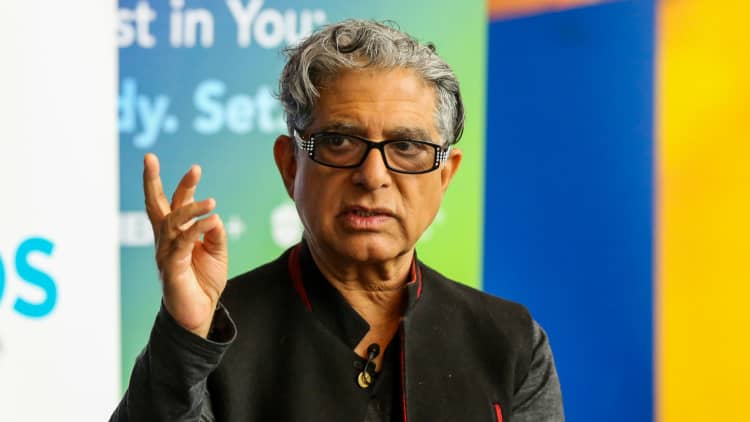In our always-on hyper-connected culture there's something that most of us can't get enough of: sleep. Long hours at the office, electronic devices we fail to power down so they interfere with our natural sleep cycles, and more than enough stress to keep us up at all hours no matter how many sheep we count, all play a part to keep us from getting the 7-8 hours of sleep every adult should have each night.
More from Bernard Marr:
9 simple tricks to boost your confidence at work
10 more tell-tale signs that you have a great boss
7 habits successful people avoid
Sleep deprivation is an epidemic. An estimated 50 to 70 million adults in the United States alone have sleep disorders. Lack of sleep impacts every aspect of our lives from our relationships with others to our health to our careers.
What happens when you don't get enough sleep?
Sleep isn't a nice to have. Humans require sleep to restore and repair body systems and a proper night's sleep helps your brain function properly. Chronic sleep deprivation can negatively impact the way you think, learn, get along with others and react. Lack of sleep undermines the parts of your brain that help regulate emotion and can be dangerous; drowsy driving can be as dangerous as drunk driving.

Of course, from time to time, we all deal with a bad night's sleep and the next day we might be off our professional game a bit. But when sleep deprivation becomes a chronic condition, it begins to do very real damage.
At the office, sleep-deprived folks often lack the motivation and drive to become better and learn new things. They find it takes longer to complete tasks and they lack focus in getting things done and to pay attention at meetings. Their creativity is negatively impacted and it becomes extraordinarily difficult to generate new ideas.
According to one study, sleep-deprived employees cost their organizations an average of $2,280 a year in lost productivity. The National Sleep Foundation found that professionals are spending an average of 4.5 hours doing work at home each week to make up for the lack of productivity at the office while exacerbating the problem by reducing their relaxation and sleep time at home.
Sleep deprivation can have very detrimental health impacts and has been linked to chronic diseases such as diabetes and heart disease and can even lead to obesity. Lack of sleep makes you more prone to illness because your immune system isn't performing at its peak. One study reported that people who averaged less than seven hours a sleep were nearly three times more likely to develop a cold than their colleagues who were well rested.
Some disastrous professional failures have also been partially attributed to a sleep-deprived workforce including the Chernobyl nuclear explosion, the Exxon Valdez oil spill and the Challenger space shuttle disaster.
How can you improve your sleep?
If you want to catapult your professional success and prevent a plethora of negative effects on your career, a powerful first step is to try to solve your sleep issues. Here are some ideas:
1. Stick to a sleep schedule
When you go to bed and wake up at the same time each day consistently, including weekends and vacation time, it reinforces your natural sleep-wake cycle. If you have trouble falling asleep and you aren't asleep within 20 minutes of going to bed, leave your room and do another relaxing activity such as reading, listening to soothing music or meditating. Once you're tired, try again.

2. Exercise
As long as you're not doing a high-intensity workout right before heading to bed, as little as 10 minutes of aerobic exercise (walking or cycling) can dramatically improve your sleep. Exercise helps reduce stress, may help reset the sleep-wake cycle because it elevates your body temperature and tires you out.
3. What you eat
You don't want to go to bed on an empty stomach, but overindulging in food or alcohol doesn't help you get a good night's sleep either. Nicotine and caffeine are stimulants, so if your body is struggling to sleep, it's another good reason you should curb your intake of those.
Try to have a high-protein snack such as a handful of almonds about one hour before bed to give your body the nutrients it needs for a sustained sleep.
4. Environment
Make sure your room is cool and dark to help ease you into slumber. You might need to add room-darkening shades, a fan or sound machine to create the ambiance you need to fall — and stay — asleep. Cover up your alarm clock if it's emitting too much light.
If you've been struggling for a week or more with trying to get a good night's sleep, it's time to take action before sleep deprivation starts negatively impacting every aspect of your life including your career.
Barnard Marr is a Best-Selling Author, Keynote Speaker and Leading Business and Data Expert. His free eBook, "Big Data in Practice," is out now.
Like this story? Like CNBC Make It on Facebook.
Don't miss: Why emotional intelligence is so important to achieving success at work


